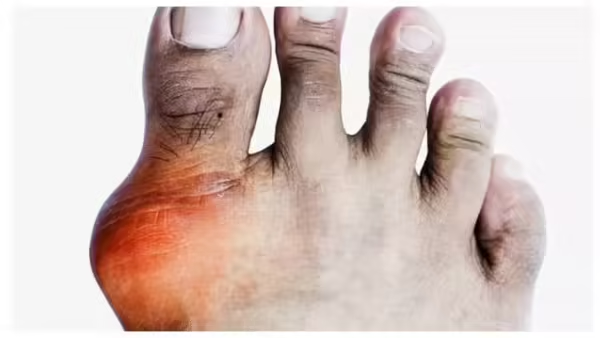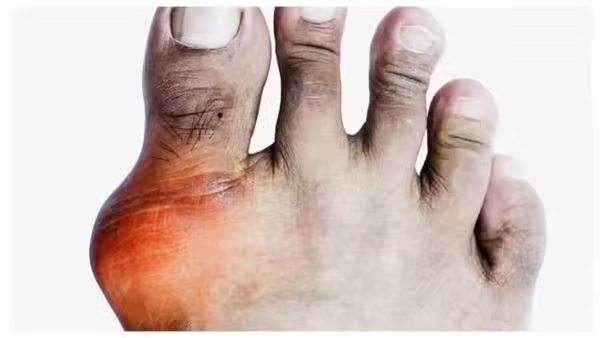High uric acid levels in the blood, a condition known as hyperuricemia, often lead to painful conditions like gout (a form of inflammatory arthritis) and kidney stones.1 Uric acid is a waste product formed when the body breaks down purines, which are compounds naturally found in the body and in many foods.2
When the body either produces too much uric acid or fails to excrete enough through the kidneys, hyperuricemia occurs.3 Understanding the triggers is the first step toward managing and preventing these conditions.
Here are 5 common triggers that significantly contribute to elevated uric acid levels:
1. Diet High in Purines (The ‘Feast’ Factor)
The most direct cause of elevated uric acid is the excessive consumption of purine-rich foods. When these foods are metabolized, they produce a surge of uric acid that the kidneys struggle to handle.
- Key Triggers:
- Red Meats and Organ Meats: Liver, kidney, and sweetbreads are extremely high in purines.4
- Certain Seafood: Shellfish (shrimp, crab), anchovies, sardines, and tuna are notorious for their high purine content.
2. Sugary Drinks and High Fructose Corn Syrup (The Sweet Danger)
While sugar doesn’t contain purines, the way the body processes fructose (especially from high-fructose corn syrup) directly leads to increased uric acid production.
- Mechanism: Fructose metabolism releases purines as a byproduct, effectively acting as an internal purine source.
- Key Triggers:
- Sweetened Sodas and Soft Drinks.
- Fruit Juices with added sugar or naturally high fructose content (in excess).
3. Excessive Alcohol Consumption (Especially Beer)5
Alcohol, particularly beer, is a potent trigger for high uric acid levels through a combination of mechanisms.6
- Increased Production (Beer): Beer contains a significant amount of purines (specifically, guanosine), directly contributing to the uric acid load.7
- Reduced Excretion (All Alcohol): All types of alcohol increase the metabolism of nucleotides (purine building blocks) and, critically, hinder the kidneys’ ability to excrete uric acid efficiently. The kidneys prioritize excreting the alcohol- waste, leaving uric acid behind.8
4. Certain Medications (The Chemical Impact)
Several commonly used medications can interfere with the kidneys’ ability to clear uric acid, leading to its accumulation in the blood.9
- Key Triggers:
- Diuretics (Water Pills): Used for high blood pressure or edema (e.g., Thiazides) often increase uric acid reabsorption by the kidneys.10
- Low-dose Aspirin: Taking low doses of aspirin daily can, for some people, mildly reduce uric acid excretion.
- Immunosuppressants: Drugs used for transplant patients.
5. Obesity and Metabolic Syndrome (The Lifestyle Effect)
Obesity and conditions like metabolic syndrome (high blood pressure, high blood sugar, excess body fat around the waist) are strongly linked to hyperuricemia.11
- Mechanism: Individuals who are overweight or obese often produce more uric acid and, crucially, their kidneys are less efficient at removing it due to insulin resistance and other metabolic changes.12
- Key Triggers:
- Rapid Weight Loss: Crash diets that cause fast cell breakdown can temporarily increase uric acid levels.
- Insulin Resistance: This is a core component of metabolic syndrome and is known to reduce uric acid clearance by the kidneys.
How to Lower Uric Acid?
Managing hyperuricemia often involves lifestyle modifications:13
- Hydration: Drink plenty of water to help the kidneys flush out uric acid.14
- Dietary Modification: Limit the intake of high-purine foods, sugary drinks, and alcohol.15
- Healthy Weight: Gradual, sustainable weight loss is critical for long-term control.16
- Medical Consultation: Consult a doctor for personalized advice and possible medication if lifestyle changes are insufficient.

